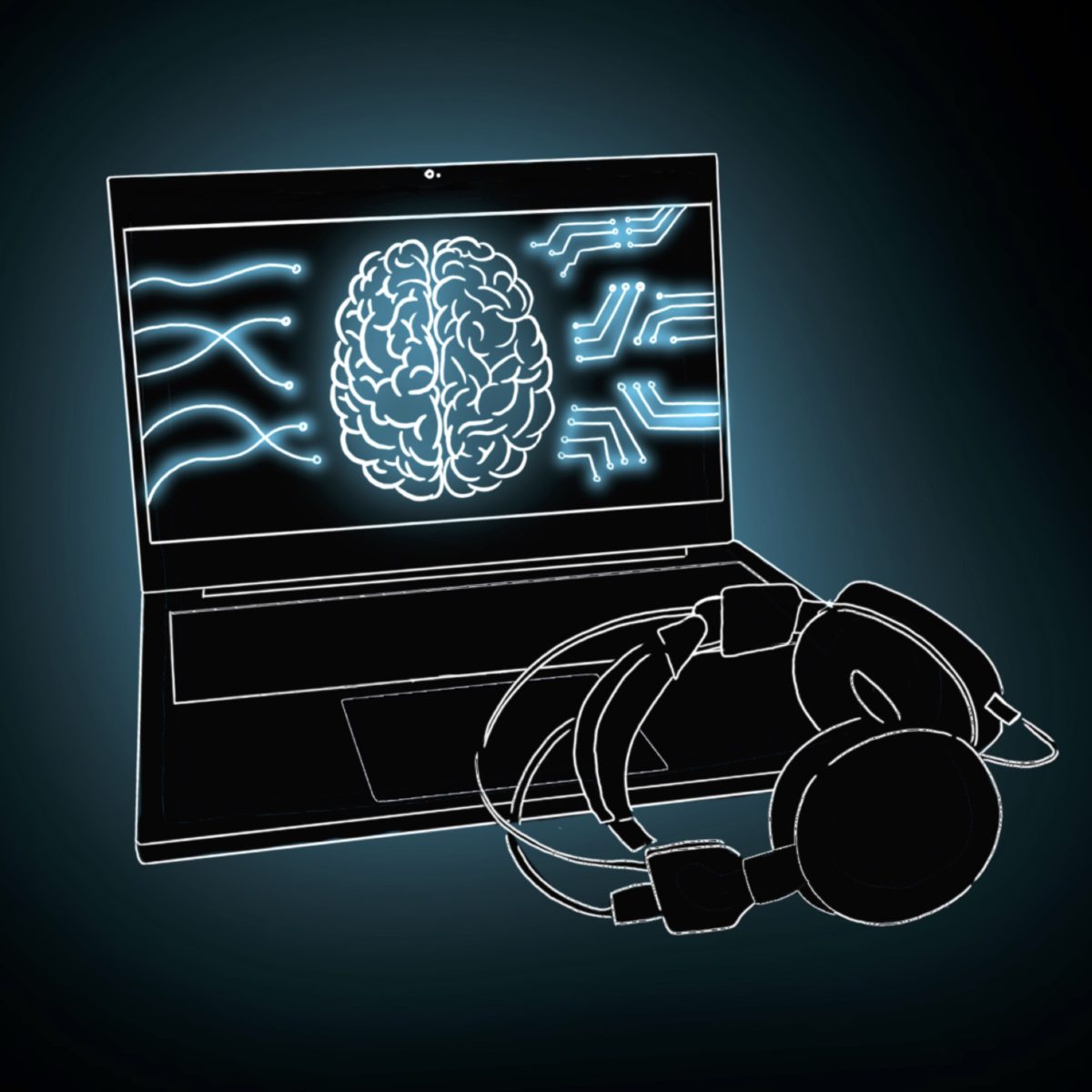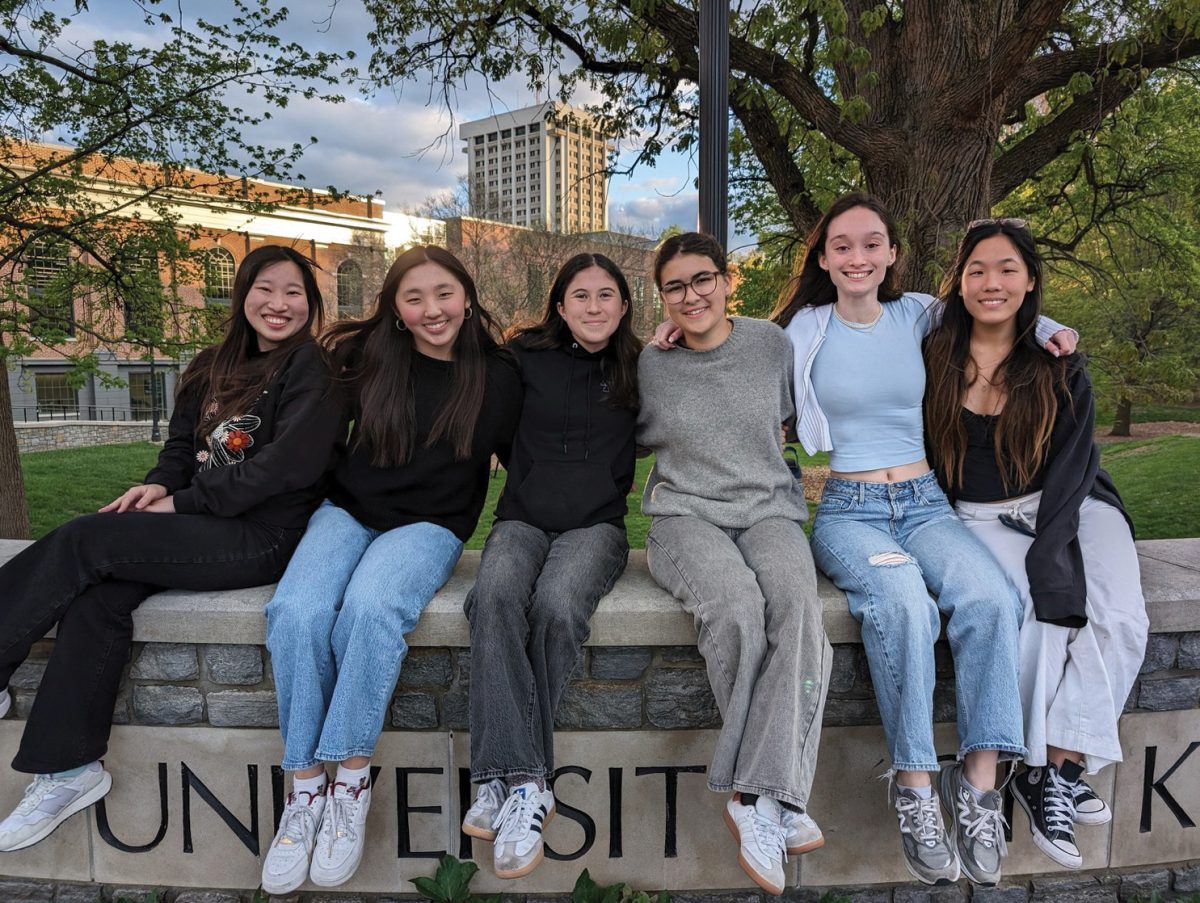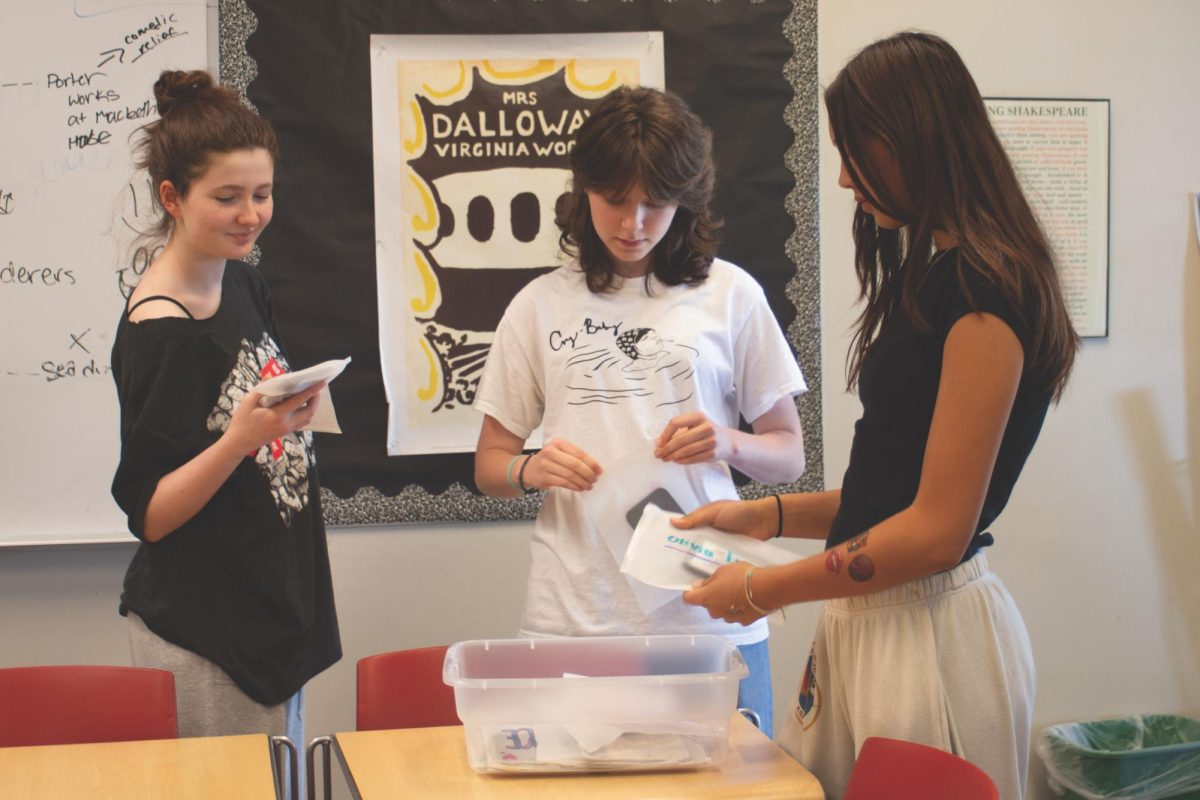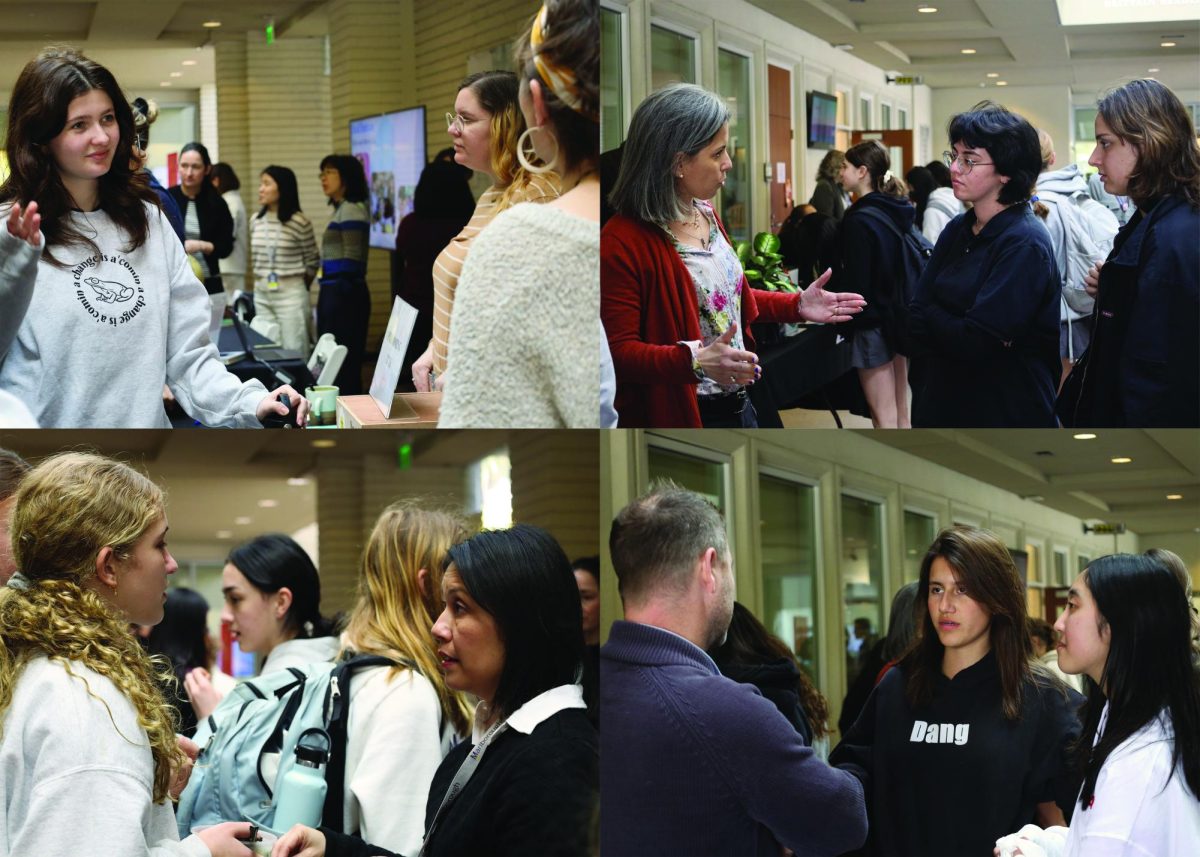An inside look at ChatGPT, its effects on the world and the role it plays at Marlborough
ChatGPT, or Chat Generative Pre-trained Transformer, is a relatively new, groundbreaking type of artificial intelligence (AI) technology with the exceptional ability to respond in a conversational manner. ChatGPT was developed by OpenAI, which was co-founded by Sam Altman. Despite having only launched on Nov. 30, 2022, ChatGPT has already grown to 100 million users since January 2023, which, according to Time Magazine, is faster than both Instagram and TikTok’s growth rates. ChatGPT’s technology grows more accurate and more powerful based on the number of inputs or queries that people ask on the chat, which is considered reinforcement learning. This process is similar to Netflix’s algorithm, which curates suggestions as it learns your taste in movies and television shows.
The goal of ChatGPT, and AI as a whole, is to revolutionize computer systems to be able to both learn and think just like people, which will ultimately make processing certain tasks and calculations exponentially more efficient for humans. Through natural language processing, part of AI is devoted to understanding and utilizing the interactions between computers and humans in order to incorporate this data into their own response.
Unlike computer language models, which are codes that write computer algorithms and website scripts, such as JavaScript or Ruby on Rails, ChatGPT utilizes human writing patterns by using people’s inputs to formulate answers as a transformer-based neural network. Neural networks learn to resemble the way in which human brains function. The transformer component is what analyzes input and creates output within the neural network. ChatGPT has over 175 billion parameters and is pre-trained, so its ability to function with any prompt was ensured prior to its release.
ChatGPT is an application built on top of OpenAI’s third generation machine learning model, using it as a baseline to know a variety of reliable sources for referencing. What makes ChatGPT stand out from all other technological advancements in the past is its ability to communicate in record time in response to a multitude of topics.
This technology works by using a neural network to produce its human-like communication, which happens through five crucial steps. First, there is input processing, where individuals are able to type a command or question into the ChatGPT text bar. In return, the text is tokenized, so every word inputted gets analyzed. Then, input embedding takes place, where the text that was just analyzed gets placed in the transformer portion of the neural network. After input embedding comes the encoder-decided attention. This step is when the transformer encodes the text, generating a response for all possible outputs. Lastly, ChatGPT produces its output answer, which is the response viewed by humans.
In addition to summarizing, translating, computing large financial calculations, interpreting lab results and analyzing legal findings, ChatGPT can also determine positive, negative or neutral sentiment from humans, which is beneficial to companies when dealing with e-commerce reviews. Different industries can use ChatGPT to produce a more efficient work pace and provide responses at all times. This can be concerning for the future, given that technology is evolving so expeditiously that AI technology can take over research jobs. However, ChatGPT can also be beneficial in allowing individuals to be more efficient through a faster ability to research.
Although ChatGPT has been proven a reliable source, there are risks that biases and misinformation have been embedded into the data, as their databases pull information from the internet, which does not always hold accurate information. Due to potential inherent biases, many local and state legislators, such as in New York, have begun proposing laws to restrict the use of AI for employers. Additionally, there are concerns of data privacy and copyright protection, especially within the workplace. ChatGPT grows as a system in every interaction, so if confidential information is implemented within the text bar, there is the possibility that private information could be disclosed.
While there are some concerns regarding ChatGPT, it has many benefits that are just beginning to be discovered. Whether through writing emails or answering quesions, ChatGPT will continue to be developed as an efficient resource.
Effects of ChatGPT
While ChatGPT has been considered remarkable, providing human-like responses and dialogue in a matter of seconds, the artificial intelligence tool is being criticized in the workplace, as these human-like responses are replacing actual humans.
According to Search Engine Journal, ChatGPT knows how to mirror human-style responses. Through its exposure to immense amounts of human data, such as Reddit discussions, the AI tool is able to create scholarly, intellectual writing.
New York University Computer Science and Electrical Engineering Associate Professor Chinmay Hegde believes that many jobs are at risk of being replaced by AI such as occupations in education, graphic design and journalism.
Teachers at elementary and middle school levels may be especially at the risk of being replaced by ChatGPT. Basic lessons at this level of education can be easily mirrored or taught without direct in-person instruction. The threat to educators has already caused New York City public schools to ban ChatGPT in all educational settings in order to promote critical thinking during school and allow teachers to continue with their jobs.
Another sector of the workforce that is affected by the creation of this high-tech service is finance. After college, people working in finance often spend numerous years learning how to manage trade and investments. But at no cost, ChatGPT can produce the same financial knowledge in a matter of seconds, thus leaving jobs in finance immensely under threat.
In 2022, AI released DALL-E 2, which, according to OpenAI, is a tool for creating “realistic images and art from a description in natural language.” DALL-E 2 is similar to ChatGPT; however unlike ChatGPT, its purpose is to produce images and art, like graphic design, from a text description fed to the website. This technology poses a threat to graphic designers, who produce similar work to DALL-E 2, but for a prolonged time period and for high prices.
Journalism and other types of online writing are also threatened by the emergence of ChatGPT. It has the ability to copy edit articles, meaning that it can edit articles for wordiness and get them ready for print at a high level. And while it occasionally leaves a few typos, ChatGPT has the ability to write articles as well.
Henry Williams, a copywriter with The Guardian, asked ChatGPT to write an article about what a payment gateway is. Williams reported that while the tone was too inhuman and sophisticated, the grammar was exact and with a couple of edits, the article easily passed as one that a professional copywriter had spent hours writing.
While Williams charged around $600 for the story, ChatGPT was able to create the same article for free and write it in less than a minute. Thus, the question being asked is : Why should companies keep using costly human labor when free online labor is just as proficient?
Not only is ChatGPT threatening jobs but it is also enfringing on search engines like Google. Unlike Google, which provides billions of links to websites with potential answers to what is entered in the search bar, ChatGPT offers its own one-paragraph synthesis of all the links that Google provides. Thus, using ChatGPT is becoming much more efficient than using Google.
According to The Guardian, ChatGPT is already at risk of replacing 3 percent of jobs and will increase as the software becomes more advanced. Critics of ChatGPT argue that the new tool has started to wipe out our human labor force and caused worry about the longevity in workers’ jobs over a plethora of occupations.
Benefits of ChatGPT (written by ChatGPT)
As previously mentioned, while ChatGPT has raised many concerns, it has also been praised for its ability to make tasks more efficient. Written by ChatGPT, the following section outlines some of the benefits of using the platform and gives readers of the UltraViolet a glimpse into what ChatGPT is able to produce when prompted with a command.
Artificial Intelligence language model ChatGPT is transforming the way we interact with technology, enabling more natural and efficient communication between humans and machines.
Developed by OpenAI, ChatGPT uses deep learning algorithms to analyze and understand natural language input, making it a powerful tool for a wide range of applications.
One of the key benefits of ChatGPT is its ability to engage in human-like conversations, making it ideal for chatbots, virtual assistants and other conversational applications. By analyzing user input and generating coherent responses, ChatGPT can provide personalized and efficient support to users, improving their overall experience.
Another benefit of ChatGPT is its language translation capabilities. By translating text between languages, ChatGPT is helping to break down language barriers and facilitate cross-cultural communication. This is especially important in today’s globalized world, where businesses and individuals need to communicate with people from different countries and cultures.
ChatGPT also has the ability to retrieve information from vast repositories of data, making it a powerful research tool. By analyzing large amounts of text data, ChatGPT can identify patterns and insights that would be difficult for humans to discern.
Furthermore, ChatGPT can learn from user interactions and personalize responses based on individual preferences and behavior. This makes it possible to deliver more relevant and useful information to users, improving their overall experience and satisfaction.
Finally, ChatGPT’s scalability enables it to handle a large volume of requests simultaneously, making it ideal for use in high-traffic environments.
Overall, the benefits of ChatGPT are numerous and wide-ranging. By enhancing human communication, improving information retrieval and transforming the way we interact with technology, ChatGPT has the potential to change the world for the better.
Impact on Marlborough
As an academic institution, the concerns surrounding ChatGPT are incredibly pertinent to Marlborough. However, our commitment to upholding a Community Pledge creates a nuanced situation in which some members of the administration aren’t motivated to completely denounce ChatGPT, but rather view it as a potential tool to supplement our education.
As of now, Marlborough has not put out an official statement regarding the School’s policy on ChatGPT. To help inform Marlborough’s future stance, Director of Studies Jonathon Allen has been organizing Zooms for around 100 academic leaders across the country to discuss the ways each school is tackling this issue.
“I’m hearing a lot of rhetoric from adults, and from some teachers, that there is an element of fear or suspicion around generative intelligence and that is legitimate,” Allen said. “I think that really we would be in a stronger position if we look at ChatGPT and other AI tools as a way to promote and enhance student learning.”
In addition to these nationwide conversations, the administration is also turning to its own faculty, opening discussions with department heads and teachers. The current plan is to create a shared document within the staculty that explains how students can abide by school policies while also using ChatGPT as a tool to support their education.
“Marlborough is interesting in this respect because we want to (and do) trust our students, there will be temptations to use this tool — and instances where it’s completely appropriate — but also ChatGPT is not always accurate … it might look really good on paper, but to a teacher, it’s not accurate so there is an element of risk involved,” Allen said.
Interim Upper School Division Head Regina Rosi Mitchell expressed similar beliefs to Allen, strongly emphasizing the importance of using ChatGPT as a tool, rather than abolishing it on campus.
“ChatGPT is not going to change our need to solve important problems and engage in work, but it will change how we go about solving problems and will make us do so more efficiently,” Rosi Mitchell said.
As stated, while the administration views ChatGPT as a potential tool, Allen and Rosi Mitchell also acknowledge the ways it can be misused. Similarly, many students also feel conflicted as to whether or not they should use ChatGPT. As a school that repeatedly emphasizes academic integrity, many students are adamantly against using ChatGPT for assignments.
“ChatGPT is scary,” an anonymous student said. “I would never use it for school work, but I use it for pure enjoyment.”
On the other hand, one student mentioned that they have used ChatGPT for assignments, contributing to the nuanced issue that the administration is dealing with.
“I use it for English assignments, and it is so helpful when I don’t feel like writing or summarizing an article I don’t want to read,” an anonymous student said.
How Marlborough will make use of ChatGPT and other forms of AI while still abiding by our Community Pledge and values remains a complicated issue.
“When it comes to ChatGPT, we should not be asking ourselves how we can prevent its usage,” Rosi Mitchell said. “Instead, the question we need to be asking is how will Marlborough prepare its students to live in a world where AI is a central part of daily life?”















